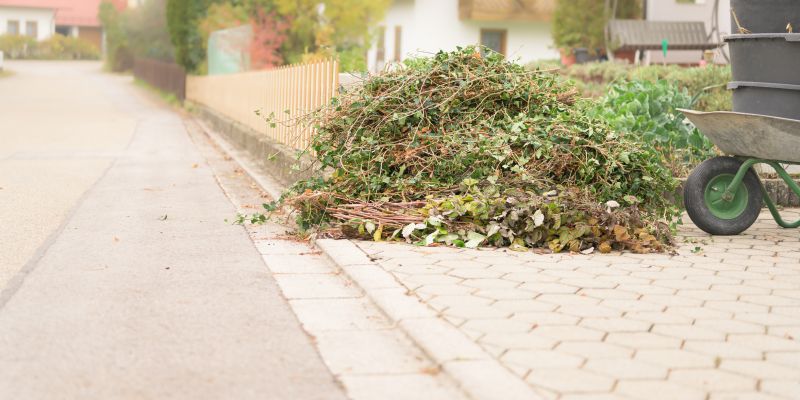Atlanta - Brush Removal
Get help with your brush removal needs. Fill out the form above and we will connect you with local pros in your area. Brush removal offers several benefits for property owners. One of the primary advantages of brush removal is the prevention of potential fire hazards. Overgrown brush and vegetation can easily catch fire, especially during dry seasons, and spread rapidly, endangering both the property and surrounding areas. By removing brush, property owners can significantly reduce the risk of wildfires and protect their assets. Additionally, brush removal enhances the aesthetic appeal of the property by eliminating unsightly and overgrown vegetation, creating a cleaner and more visually appealing landscape. Furthermore, brush removal promotes the health of surrounding plants and trees by reducing competition for resources such as sunlight, water, and nutrients. This allows the remaining vegetation to thrive and flourish. Overall, brush removal is a proactive measure that improves safety, enhances the appearance of the property, and supports the overall health of the ecosystem.
Brush removal is a professional service that involves the clearing and elimination of unwanted vegetation, such as shrubs, small trees, and undergrowth. This process helps to enhance the aesthetic appeal of outdoor spaces and ensures the safety and functionality of the area. Whether it's for residential or commercial purposes, brush removal is an effective way to maintain a clean and well-maintained landscape. By employing skilled professionals, you can rely on their expertise to efficiently remove brush, creating a more open and inviting environment. With their specialized tools and techniques, these professionals can tackle even the most challenging brush removal projects, leaving your outdoor space looking refreshed and revitalized.
Q: How Can I Effectively Remove Brush From My Property Without Damaging The Surrounding Vegetation?
Answer: To effectively remove brush from your property without damaging the surrounding vegetation, follow these steps:
1. Plan and assess: Identify the brush species and determine the extent of the problem. Assess the surrounding vegetation and make note of any sensitive plants or trees that need protection.
2. Manual clearing: Start by manually removing smaller brush and weeds using hand tools like pruners or loppers. Be careful not to disturb the surrounding vegetation while doing so.
3. Mechanical clearing: For larger areas or thicker brush, consider using mechanical equipment like brush mowers or brush cutters. Ensure that the equipment is properly adjusted to minimize damage to surrounding vegetation.
4. Selective cutting: If there are specific brush species that need to be removed, selectively cut them down while avoiding nearby desirable plants. Use techniques like cut-stump or cut-and-paint to prevent regrowth.
5. Herbicide application (if necessary): As a last resort, consider using herbicides targeted specifically for brush removal. Follow the instructions carefully, apply only to the brush, and avoid contact with surrounding vegetation.
6. Monitor and maintain: Regularly monitor the area for any regrowth and promptly remove any new brush. Implement preventive measures like mulching or planting desirable vegetation to discourage brush regrowth.
Remember, it's crucial to be mindful of any local regulations or permits required for brush removal, especially if you're dealing with protected or invasive species.
Q: Are There Any Natural Or Ecofriendly Methods For Brush Removal?
Answer: Yes, there are natural and eco-friendly methods for brush removal. Some options include manual cutting and removal, using goats or other grazing animals to eat the brush, or utilizing biodegradable herbicides made from natural ingredients. These methods help minimize environmental impact while effectively clearing brush.
Q: What Are Some Safety Precautions I Should Take When Removing Brush To Prevent Accidents Or Injuries?
Answer: When removing brush, it is important to take the following safety precautions to prevent accidents or injuries:
1. Wear protective clothing, including gloves, long sleeves, and pants, to shield your body from scratches, cuts, and irritants.
2. Use appropriate tools, such as pruning shears or a chainsaw, and ensure they are in good working condition.
3. Clear the area of any obstacles or tripping hazards before starting the removal process.
4. Be aware of your surroundings and keep a safe distance from others to avoid accidental injuries.
5. Stay hydrated and take breaks as needed to prevent fatigue, which can lead to accidents.
6. If using machinery, carefully read and follow the manufacturer's instructions for safe operation.
7. Dispose of the removed brush properly, following local regulations and guidelines.
Remember, safety should always be a priority when undertaking brush removal to minimize the risk of accidents or injuries.


